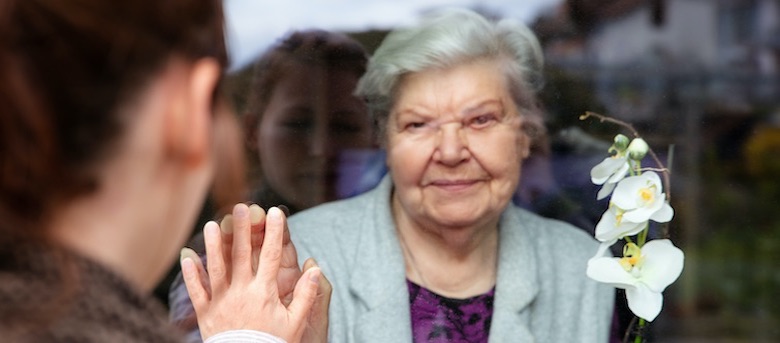While we are doing an excellent job helping older adults to shelter in place to protect them from the dangers of coronavirus, we haven’t yet figured out as a society how to adequately protect the elderly from another real and growing threat — social isolation. And, of course, as human beings we all need connection to others in order, not only to survive, but also to thrive.
Numerous studies show that social isolation is implicated in higher rates of cardiovascular and other types of disease, decline in dementia and Alzheimer’s, and even shortened lifespans. Many of our Coastal Care Partners clients have been sheltering for months now, and we are seeing the results of their being separated from family and friends. The biggest change we have noticed in some of our clients is a decline in their cognitive function.
We have been working hard to help our clients combat the negative effects of social isolation and have found a few tricks that have seemed to help.
- Develop a plan to connect on a consistent basis with family and friends. A great and simple way to maintain connection is with regularly scheduled phone calls and video conferencing (Facetime or Zoom are easy and efficient platforms for this).
We have one client for whom we have helped to set up a phone call with her out-of-town son twice a week on his way into work in the morning. She is so excited for this call … she even gets dressed up for it, even though he can’t see her!
- Get outside if possible.
We have assisted in setting up regular walks with friends for some of our clients, which of course can safely be done six feet apart. With this simple suggestion, you can get healthy exercise, vitamin D from the sun, interaction with nature and the all-important social connection.
- Be creative!
We have done some fun things with clients, such as virtual bridge clubs and virtual dinner parties. Try to think of activities before Covid-19 and then brainstorm possible ways to do them now but virtually. Also sending hand written notes, cards and letters to your elderly loved ones can make their day! And encouraging them to handwrite notes to send to family or friends can help maintain healthy brain function.
- If possible, consider adopting a pet. Pets can help reduce stress and lower blood pressure. With a dog, an older adult can even increase social interaction by taking it out for walks. While it might be tough for an older adult to get a new puppy, an older dog sometimes is a great fit.
- Bring in a caregiver. Sometimes bringing in a caregiver makes a lot of sense and can make all the difference in an elder’s emotional and mental, as well as physical health. Caregivers can be a significant source of companionship, encouragement and everyday help, all of which are so very important right now.
Our wonderful caregivers here at Coastal Care Partners are going on walks with our clients, helping with physical therapy exercises, facilitating planned FaceTime or Zoom calls with family and friends, preparing meals with our clients, and so much more.
Be safe and healthy. We CARE about you!
Amy Pierce, RN, BSN,CMC

